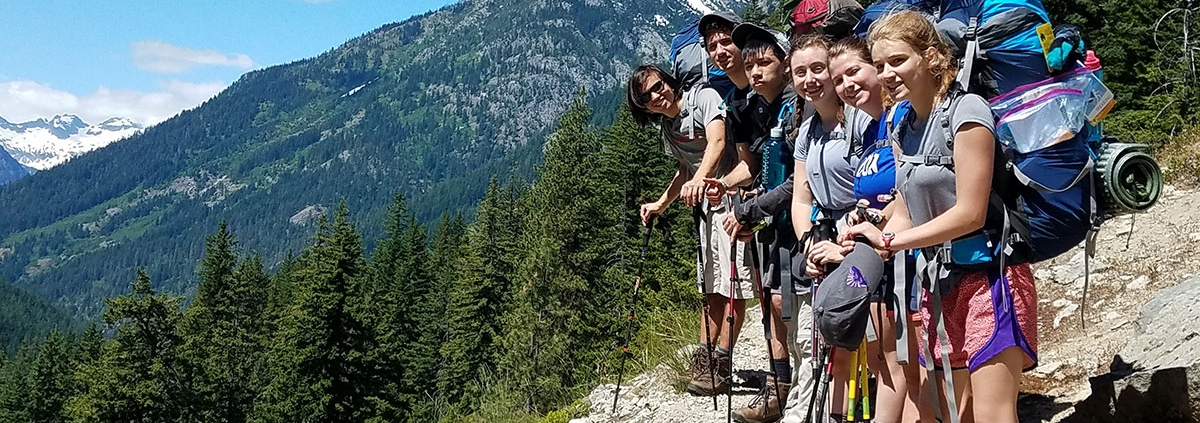How Adventure Treks Taught Me the Difference Between ‘Hard’ and ‘Bad’
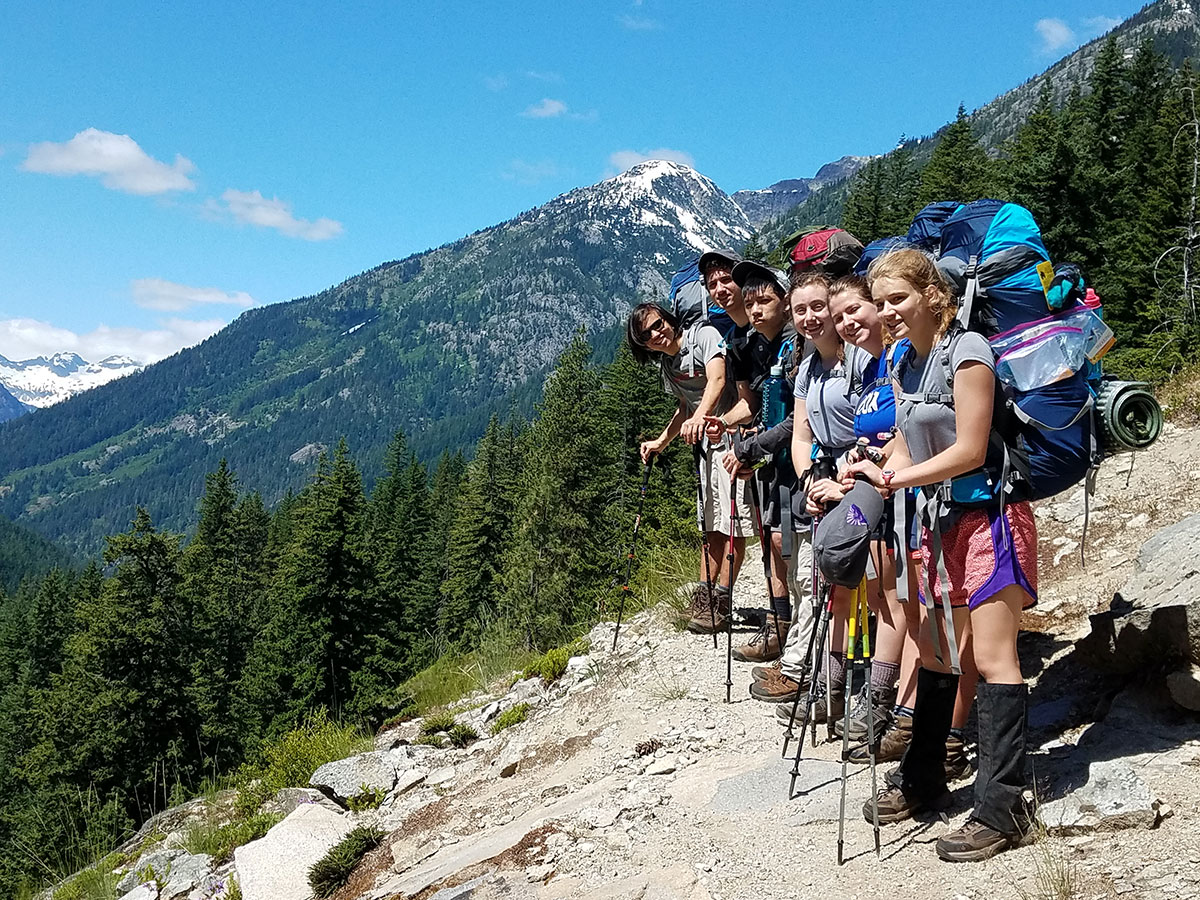
Jack’s 2017 Leadership Summit group in the Goat Rocks.
While backpacking in Washington’s Goat Rocks Wilderness, long days on the trail are unavoidable. The sub-alpine meadows and harsh, igneous cliffs provide a spectacular visual stage for backcountry travel, but the steep ridge climbing and above-treeline exposure puts even a low-mileage itinerary into a test. It is beautiful, challenging, and ultimately rewarding—in other words, a perfect setting for life lessons.
It was July 2015, a drought year in Washington, and my group of Leadership Summit students and I were at the end of a very hot, difficult, and gloriously clear, blue sky day in the Goat Rocks. Long, dusty miles had come and gone between water sources and shade that day, but finally we found ourselves at a lake as the sun was setting. When we hiked up and over the final scree pile, we saw the tents of other hikers, unoccupied sites for newcomers like us, and the staggering shock of the aquamarine lake, set like a blue diamond against the slate gray rocks. It was a paradise oasis. We all hooted with triumph, laughed out of exhaustion and relief, and set our packs down to sit in the cool glow of the water. The soft, warm light of the setting sun reflected off the snow on three different Cascades volcanoes, and I thought to myself that I had never been anywhere more impressive.
We started to get busy with the night’s necessary tasks: Students set out sleeping bags and pads to sleep under the stars and began boiling water for dinner. As the bustle of camp life hummed in the background, I pulled the map out to look at our progress and start planning for the next day. Instantly, labels on the map started jumping out at me, and a panic settled into my chest before my mind could fully register what I was reading.
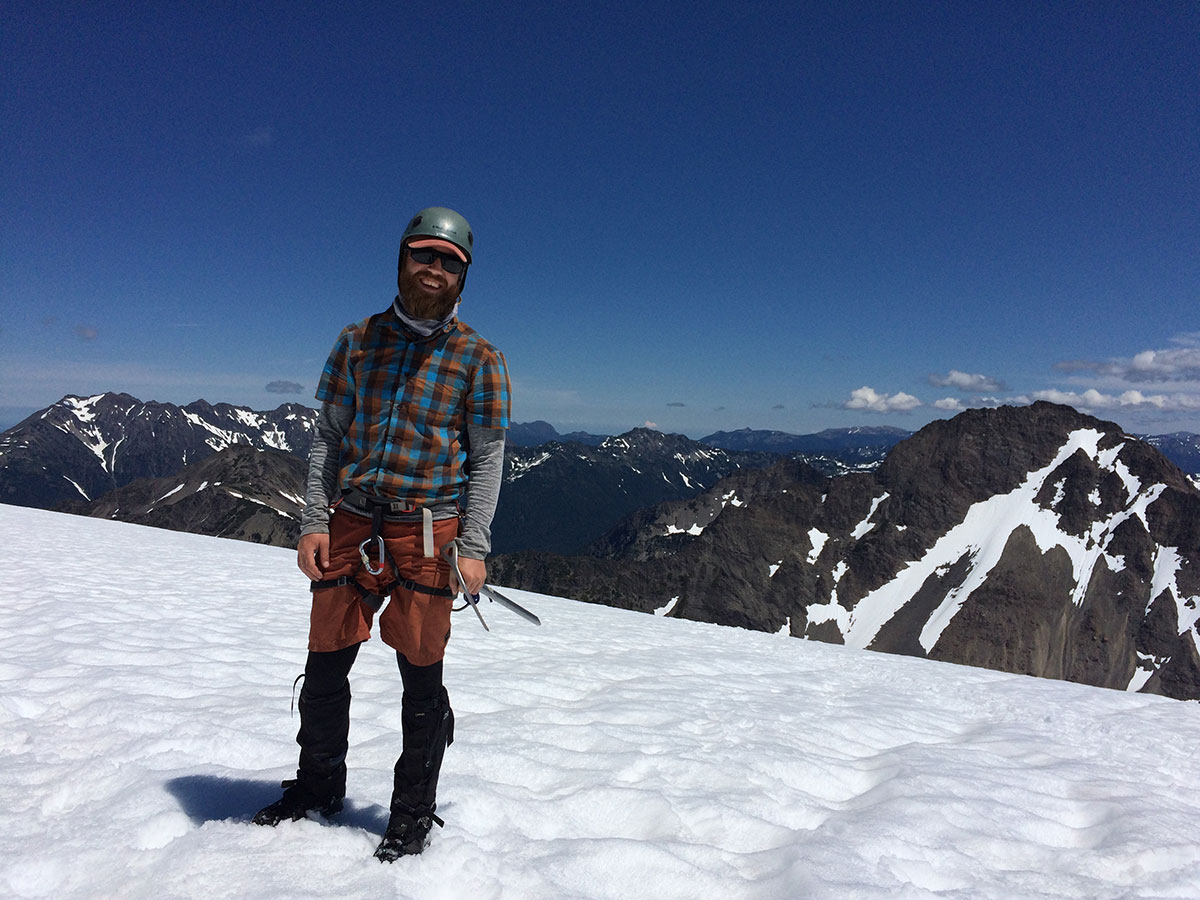
Jack atop Mt. Adams.
A small note next to our lake indicated that the Forest Service had designated special circumstances for this lake and the campsites that surrounded it. Words like “protected” and “restricted” stuck out in stark relief, and I felt myself beginning to understand. Adventure Treks’ permits outline very specific guidelines for where we can and cannot camp, and it was quickly becoming clear that we were in a “cannot camp” area. My heart sank as I realized we had to leave, and I became very aware of how tired my legs and mind were.
I explained to my students that we had to pack up and continue hiking after dinner—that we had to go another few miles to reach an area that we were allowed to camp in, and even though we were all exhausted, we would not be able to stay the night here. They were visibly horrified, and many of them thought I was joking. After convincing them that I was not, they began complaining and trying to reason with me.
“Jack, are you sure?” “It probably just means you can’t stay more than one night. We’ll be super clean, and we’ll leave early in the morning.” “No one will ever know we were here.”
It took several minutes to help them come to grips with our reality (I had to convince myself as well), and finally we began packing up and slowly, miserably preparing to hike again. When everything was back in our backpacks, we clicked on our headlamps and began walking. The moon was out and it was a clear night; we had no trouble seeing. The red of the setting sun on the snow-covered mountains was replaced by the moonlight and an uncountable multitude of stars wheeled overhead.
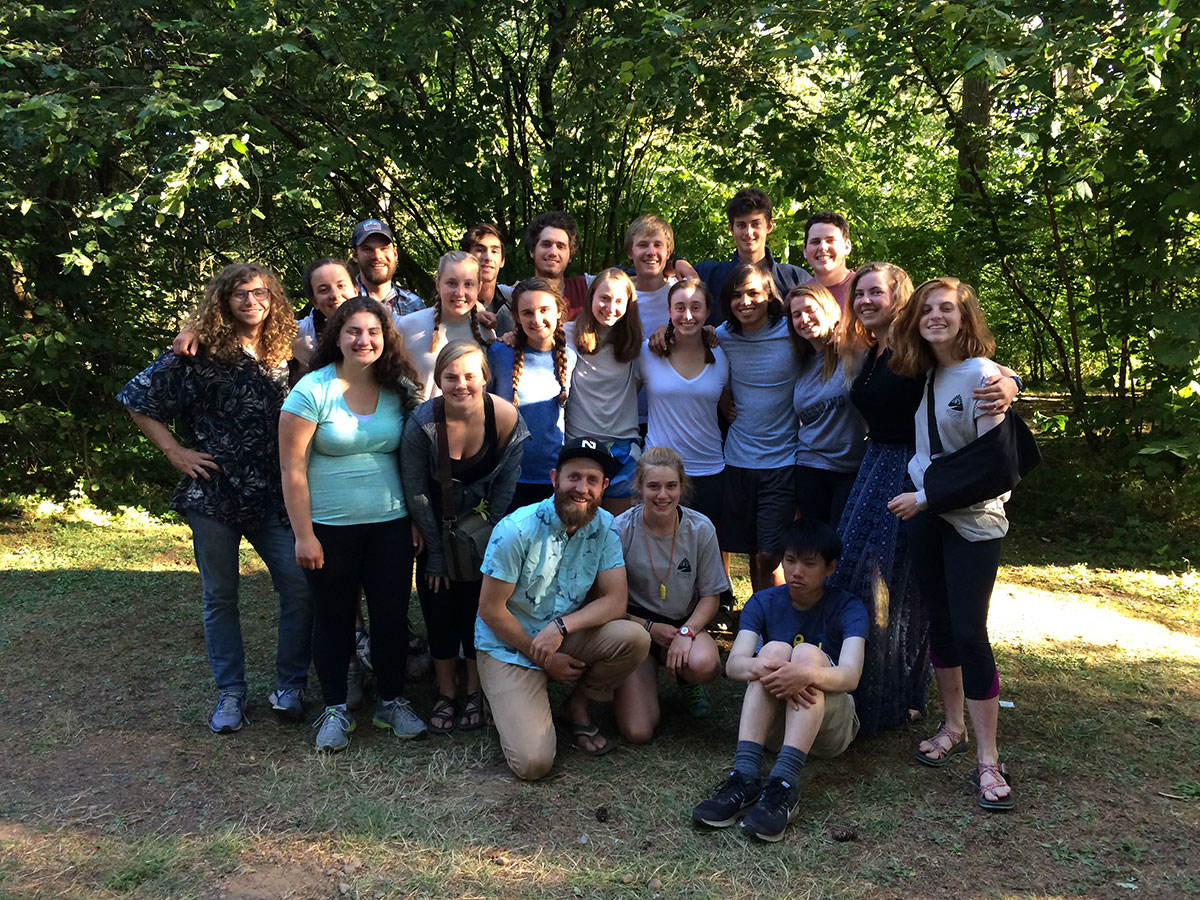
A group photo of Leadership Summit 2017.
With the moon illuminating the landscape, I began to see some very clear benefits of hiking at night. Seeing the world by night is different; it is new, unknown, unexplored, and gorgeous. With the sun gone, the air was cool and pleasant; only the slightest breeze blew, giving a blessed break from the ever-present thirst and heat of the day. At the back of the line, I stopped and took a deep breath, watching the string of headlamps slowly bob down the trail, a lazy flock of fireflies, and I smiled.
While working at Adventure Treks, I have had to explain the difference between hard and bad many times. It is so easy to lump them together, and the two words are often used interchangeably. However, they are different, and understanding that difference has been so useful—not only at Adventure Treks, but also in life at home. Having to leave the lake was hard, yes, but it was not bad—it was just reality. When I learned to separate the idea of a difficult thing from the idea of a bad thing, I realized I could actually like my reality.
This is a lesson I have come back to again and again during the COVID-19 lockdown. The difficulties of my life due to the new restrictions are fewer than many; I work from home, take walks in my neighborhood, and talk to my family on the phone, but with all change comes challenges. I know that I am very lucky to not be subject to the truly bad parts of this pandemic; the challenges I face are the small things that many of us are dealing with. Adjustments to a new normal, fears about the health of family and friends, the cancelling of anticipated events—all have imposed hardships on my life that I can imagine not having to think about if we did not have this coronavirus to deal with.
But then I see that this challenge is just the reality. I remember my time in the Goat Rocks (or any number of experiences with Adventure Treks) and I stop and take a breath; the stars are out there if I just look up.
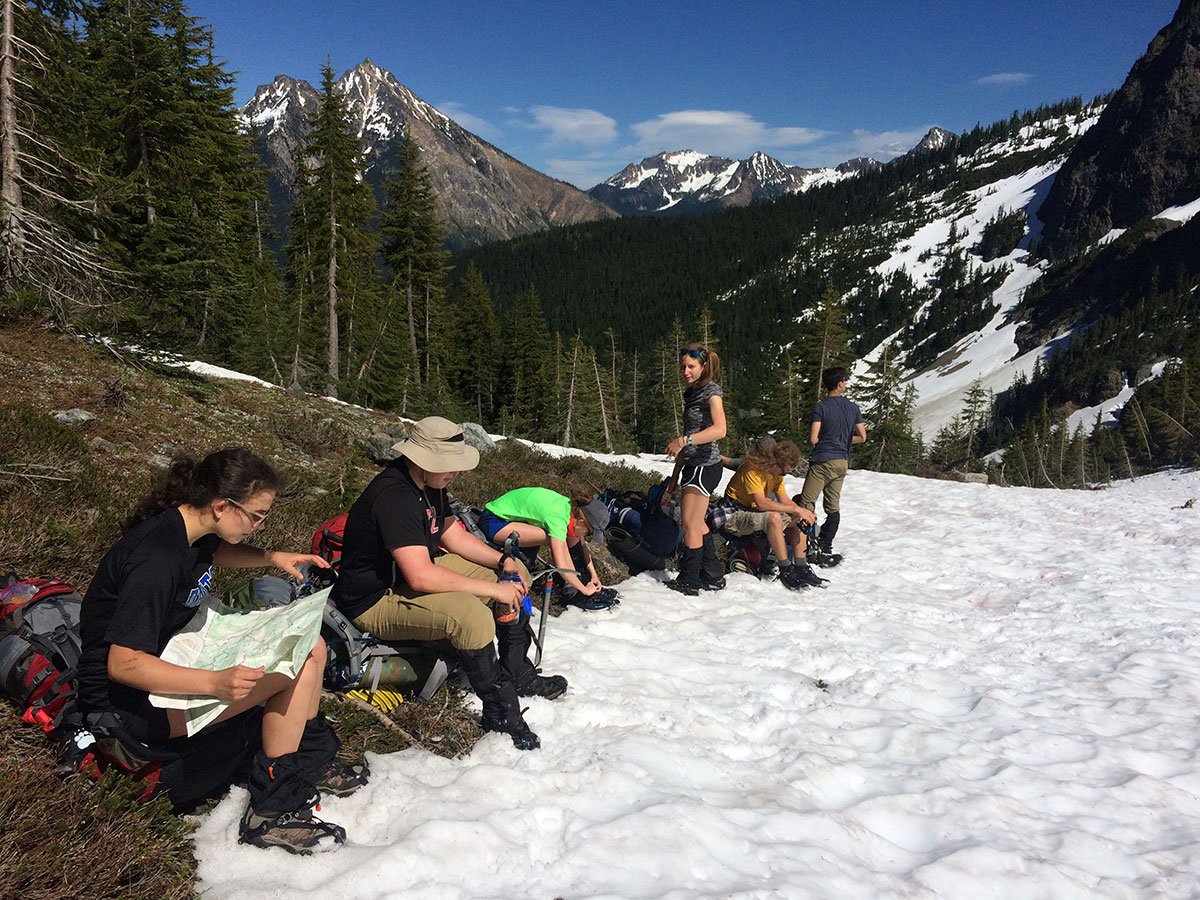
Leadership Summit 2017 students taking a “packs-off” break.
My long hours in the house, anxiety in public places, and lack of socializing has been difficult, but my life is far from bad. I spend a lot of time at home, which means I can work on creative projects, something that I am always wanting more time for. I feel anxious when I am in grocery stores and other public places, but I am thankful of my body and mind for keeping me vigilant and aware. I haven’t spent time with friends right now (like going out to eat, mountain biking, or potlucking), and that just means I spend lots of time with my partner, who is a wonderful person and someone I love being with.
So I’ve learned to see that the things that challenge me are not negative—they’re just hard, and they take effort. We are going to the next campsite; this is our reality, and we can’t change that. We’re not staying at this lake, no matter how amazing and easy that would be.
So what do we make of our current reality, and how do we meet the moment? Sometimes that is all that separates hard from bad. We cannot change what is, but we can choose if we smile.
